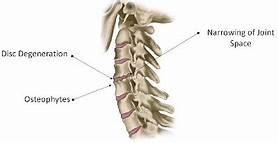Cervical spondylosis (CS) is a general term for wear and tear affecting the spinal disks in the neck. As these disks age, they shrink and signs of osteoarthritis can develop, including bony projections along the edges of bones (bone spurs). CS is very common and worsens with age. About 85% of people over 60 are affected by cervical spondylosis. For most of them, it causes no symptoms. When symptoms do occur, non-surgical treatments often are effective. I think there are not many so-called alternative treatments that are not being promoted as effective for CS – often with the support of some lousy clinical trials. Homeopathy does not seem to be an exception.
This trial attempted evaluating the efficacy of individualized homeopathic medicines (IHMs) against placebos in the treatment of CS.
A 3-month, double-blind, randomized, placebo-controlled trial was conducted at the Organon of Medicine outpatient department of the National Institute of Homoeopathy, India. Patients were randomized to receive either IHMs (n = 70) or identical-looking placebos (n = 70) in the mutual context of concomitant conservative and standard physiotherapeutic care. Primary outcome measures were 0-10 Numeric Rating Scales (NRSs) for pain, stiffness, numbness, tingling, weakness, and vertigo, and the secondary outcome was the Neck Disability Index (NDI), measured at baseline and every month until 3 months. The intention-to-treat sample was analyzed to detect group differences and effect sizes.
Overall, improvements were clinically significant and higher in the IHM group than in the placebo group, but group differences were statistically nonsignificant with small effect sizes (all p > 0.05, two-way repeated measure analysis of variance). After 2 months of time points, improvements observed in the IHM group were significantly higher than placebo on a few occasions (e.g., pain NRS: p < 0.001; stiffness NRS: p = 0.024; weakness NRS: p = 0.003). Sulfur (n = 21; 15%) was the most frequently prescribed medication. No harm, unintended effects, or any serious adverse events were reported from either group.
The authors concluded that an encouraging but nonsignificant direction of effect was elicited favoring IHMs against placebos in the treatment of CS.
I agree that it is encouraging that Indian homeopaths have recently dared to publish also negative findings! However, I do not agree that the findings are encouraging in the sense that they indicate anything other than that homeopathy is a placebo therapy.
Unfortunately, I cannot access the full article without paying for it. Thus I am unable to provide detailed criticism of this study – sorry.

Since homeopathy lacks all traces of prior probability anyway, there is no need to read the full article, even if it were free.
It’s interesting that the authors admit to being encouraged by something that isn’t significant. An exemplar for all homeopathy, perhaps…..
“This trial attempted evaluating the efficacy of individualized homeopathic medicines (IHMs) against placebos in the treatment of CS.”
Which should mean that all patients (both groups) gave informed consent that they were being randomised and might/might not be receiving IHM or ‘an identical placebo’.
But did they?
And how the trialists differentiated the two ‘medicines’, apart from the labels on the bottles, is mysterious.
As was commented upon when the House of Lords reported on Homeopathy.
Yes, the trial ‘attempted’ an evaluation – but did not succeed.
Why oh why cannot, do not, these enthusiasts for healthcare practice train and study conventional progressive modern methods?
Just what is driving them to develop careers based on such outmoded ideas?
Blind faith I guess.
Unless they are frauds, charlatans, and scamists.
How can we tell?
Where is Dana?
😀
in representation of…
“Efficacy of Individualized Homeopathic Medicines in Plantar Fasciitis: Double-blind, Randomized, Placebo-Controlled Clinical Trial ”
Conclusion: IHMs acted SIGNIFICANTLY BETTER than placebo in the treatment of PF; however, the trial being underpowered, the results should be interpreted as preliminary only. Independent replications are warranted.
https://pubmed.ncbi.nlm.nih.gov/34492725/
“Individualized Homeopathic Medicines in Treatment of Hyperuricemia: Evaluation by Double-Blind, Randomized, Placebo-Controlled Trial”
Conclusion: IHMs showed SIGNIFICANT BETTER results than placebos in reducing SUA levels and improving quality of life in patients suffering from HU.
https://pubmed.ncbi.nlm.nih.gov/36122588/
https://publikum.net/replik-auf/